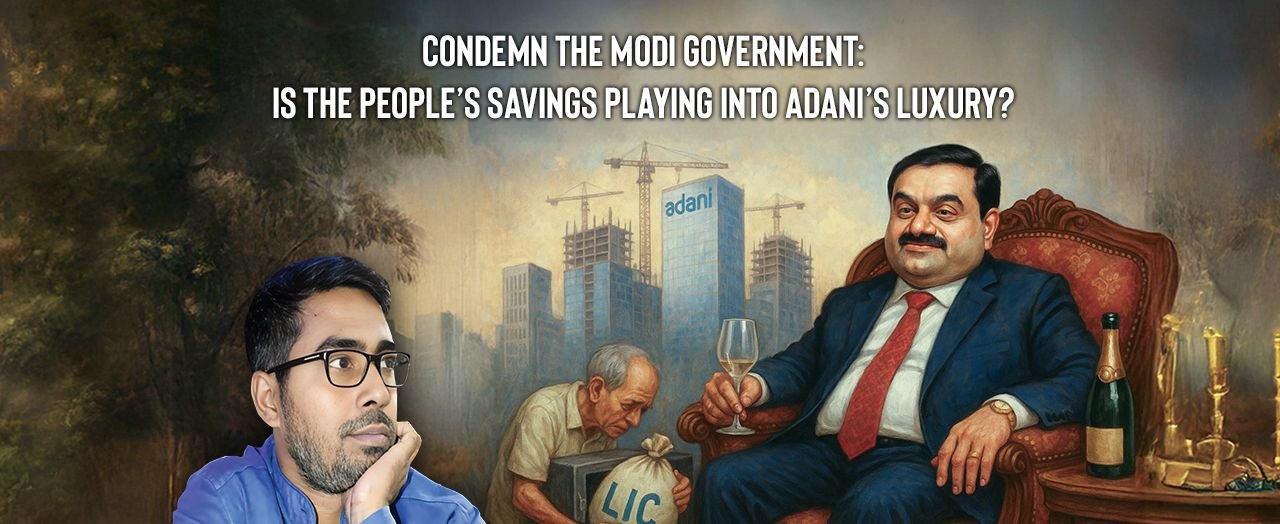Shah J. Choudhury
The Life Insurance Corporation (LIC), a state-owned institution built on the sweat and labor of ordinary Indian citizens, was once a symbol of public security and trust. Today, it appears to have become a tool for corporate favoritism and political bias.
Recent reports indicate that, under the direct or indirect instructions of the Indian government, nearly $3.9 billion (approximately ₹32,000 crore) of LIC’s funds were invested in various business projects of Gautam Adani, India’s second-richest man—at a time when his empire is facing multiple legal and financial challenges.
This is not merely an economic irregularity; it is a profound signal of the moral erosion of the state.
Who Owns the State — the People or the Industrialists?
In a democracy, the wealth of the state belongs to the citizens; the government is merely its custodian. But when the savings of the public—their insurance funds—are used to protect the personal interests of a single industrialist, it is nothing short of a moral betrayal.
LIC represents the future of millions of ordinary Indians, who invest in it for their children’s education, healthcare, and retirement security. If these funds are secretly diverted, due to political proximity, into a single person’s businesses, it is not only an economic crime—it is a breach of trust in justice.
Adani: An Empire Under the Shadow of the State
Gautam Adani is among India’s wealthiest individuals, yet the rise of his empire has repeatedly raised questions about state policies and favoritism.
Numerous international reports have highlighted how government-supported policies, infrastructure contracts, and investment opportunities have repeatedly favored the Adani group.
When doubts, investigations, and financial instability began to threaten his empire, state-backed “financial support” did more than rescue a single individual—it endangered an entire system.
Crisis of Public Trust
LIC, SBI, and other state institutions are symbols of the public’s confidence. When this confidence is exploited for political advantage, it calls into question the very existence of the state.
If state institutions no longer belong to the people, but instead become tools in the hands of select groups or powers, this marks the most dangerous transformation of democracy.
This is not only a warning for India—it is a cautionary tale for democracies worldwide:
“The moment a state begins to serve the interests of a group rather than its citizens, it loses its moral right over the people.”
A Call for Morality
I view this incident not merely as an economic issue, but as a moral and human question.
If the wealth, dreams, and future of the citizens are sacrificed for the corporate interests of a single individual, it is not only a defeat for the economy—it is a defeat for humanity.
The foundation of the state is trust. Once that trust is broken, no monetary policy or budget can restore it.
I strongly condemn this act—
because it teaches us that democracy survives not merely through votes, but through faith in justice.
Final Words
Today’s events raise a critical question:
Is the state a guardian of the people, or a servant of power?
LIC’s transactions provide a somber answer—spoken in a whisper of shame.
If we remain silent, the next generation may never trust their state again.







